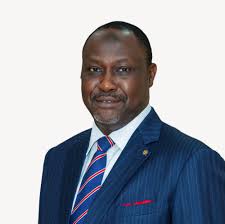The Financing Africa Forward Summit, a collaborative effort between Standard Bank, Africa Practice, the ONE Campaign, and the African Peer Review Mechanism (APRM), recently convened in Johannesburg to address the urgent issue of Africa’s escalating cost of capital. The summit brought together prominent African finance ministers, development experts, and private sector leaders, all united by the shared goal of reshaping the continent’s financial landscape and tackling the exorbitant borrowing costs that hinder its development. The summit highlighted the stark reality that African nations face interest rates up to five times higher than those offered by Multilateral Development Banks, a disparity that drains billions of dollars annually from African economies. This financial burden, coupled with increasing debt servicing obligations, is creating a precarious situation where more capital flows out of developing nations than flows in through development assistance and new financing. The summit participants recognized the urgency of the situation and resolved to implement an action-oriented plan to reduce the cost of capital within the next one to three years.
Central to this ambitious plan is a four-pronged approach aimed at fundamentally altering the financial dynamics faced by African nations. Firstly, the summit underscored the need to reform the global financial architecture to better serve Africa’s needs. This includes advocating for changes to international standards and regulations to create a more equitable global financial system, empowering Africa to have a stronger voice in shaping the rules that govern global finance. Secondly, the plan emphasizes strengthening governance and fiscal management within African nations. This involves encouraging strategic investments by governments, fostering innovative market structures, reducing reliance on external borrowing, and prioritizing development spending. By strengthening internal financial mechanisms, African nations can reduce their vulnerability to volatile global markets and create more sustainable pathways to economic growth.
The third pillar of the action plan focuses on improving the quality, methodology, and availability of African financial data. Accurate, timely, and transparent financial data is crucial for informed decision-making by both governments and investors. Improving data quality can help dismantle outdated narratives about risk and showcase the true investment potential of African economies. Finally, the plan calls for a concerted effort to change the narrative surrounding African economies. By leveraging evidence-based campaigns, the initiative aims to shift perceptions of Africa from one of “risk and assistance” to one of “opportunity and investment.” This narrative shift is crucial for attracting foreign investment and fostering confidence in African markets.
Summit participants articulated the significant economic consequences of the prevailing high cost of capital. Samaila Zubairu, President/CEO of the Africa Finance Corporation, highlighted the “prejudice premium” paid by Africa, estimating the annual cost at $75 billion due to mispriced risk and exaggerated default perceptions. Ndidi Nwuneli, President/CEO of the ONE Campaign, emphasized that access to affordable capital is not a luxury but a necessity for Africa’s development, urging a reassessment of risk narratives to reflect the continent’s true potential. Sim Tshabalala, CEO of Standard Bank Group, stressed the transformative impact that addressing the cost of capital could have on African economies, noting that it extends beyond infrastructure development to encompass the creation of opportunity, resilience, and prosperity. Marcus Courage, CEO of Africa Practice, used a powerful analogy to illustrate the unequal playing field faced by African nations, comparing their struggle to climbing a mountain with weighted vests while others are provided harnesses. Dr. Misheck Mutize, Lead Expert on Credit Ratings at APRM, warned global institutions that their current models risk becoming irrelevant if they fail to heed the calls for reform and continue to prioritize short-term gains over sustainable development.
The summit served as a decisive moment for African leaders to collectively demand a more equitable financial landscape. The action plan, poised for implementation within the next three years, is designed to be context-specific, giving African nations agency in shaping their own financial destinies. This focus on self-determination ensures that the solutions implemented are tailored to the unique circumstances of each nation and aligned with their long-term development priorities. The collaborative effort to implement these reforms will be spearheaded by a coalition of African institutions and actors. This collaborative approach is crucial for ensuring the sustainability and effectiveness of the initiative, leveraging the expertise and resources of a diverse range of stakeholders.
The summit concluded with a resounding message: Africa will no longer passively accept the status quo of financial injustice. The continent is taking proactive steps to secure its economic sovereignty and ensure that its access to capital reflects its true potential. The summit participants expressed a determination to challenge the existing global financial architecture and demand a fairer system that supports sustainable growth and development across Africa. The pursuit of financial justice is no longer a distant aspiration but an immediate priority, and the action plan developed at the summit represents a concrete step towards realizing this vital goal. The collective call for reform signifies a paradigm shift, with African nations taking the lead in shaping their own financial future and demanding recognition of their rightful place in the global economy. The success of this initiative will not only benefit Africa but also serve as a model for other developing regions seeking to challenge the existing global financial order.


